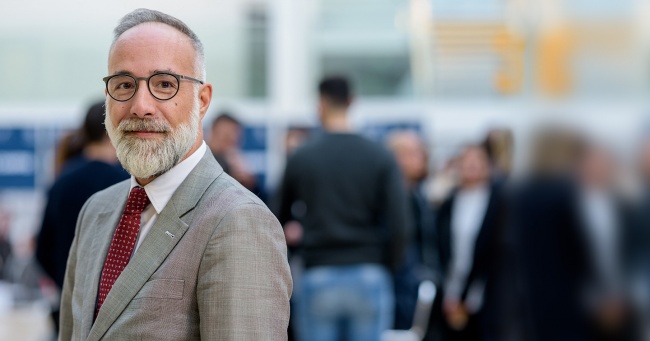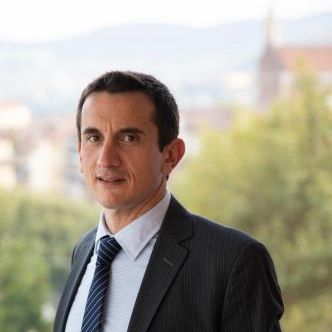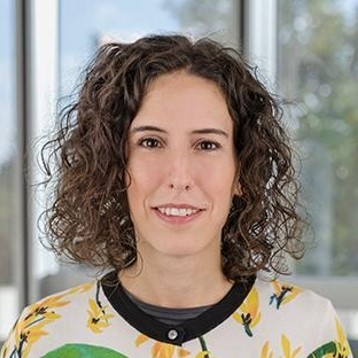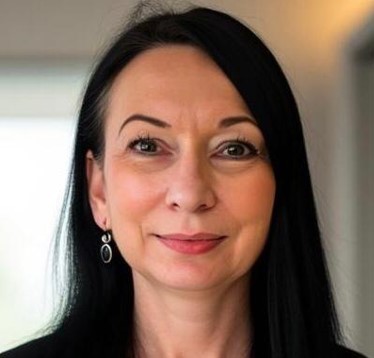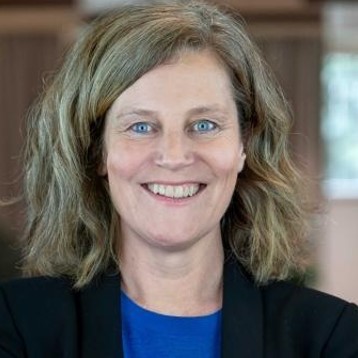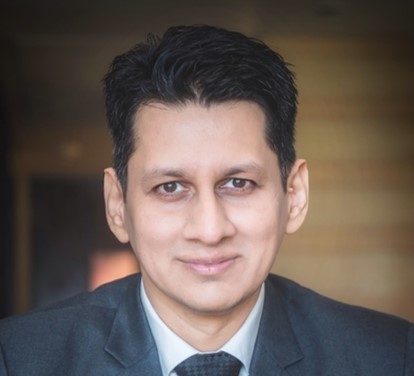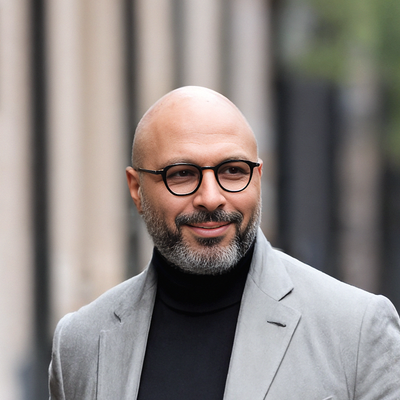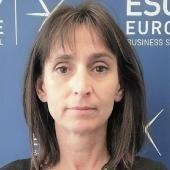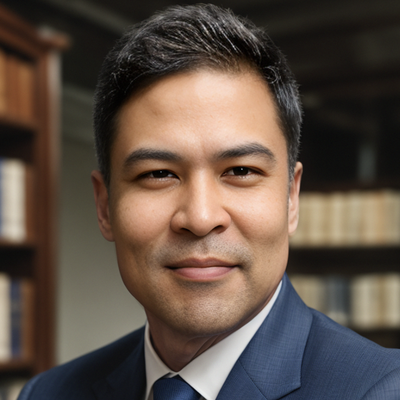Global Executive Ph.D.
Designed for an executive audience
Doctoral-level Qualification
The world we are living in is facing profound evolution and relentless change. In this environment, we need visionary leaders who are capable of adapting, learning and inspiring others. Our programme enables senior executives and business leaders to act as reflective practitioners and to conduct valuable, doctoral-level research on a part-time basis over three to four years. You will benefit from the expertise of ESCP’s international world-class faculty.
Participants are expected to remain in employment and leverage their professional and personal experience throughout the programme.
Overview of ESCP Global Executive Ph.D.
Research Method Modules
Develop methodological and theoretical skills at a doctoral level
Advanced Specialisation Modules
Develop field-specific expertise
Modules delivered over 3 residential sessions
Research Paper
Apply the skills you have acquired to a concrete industry-relevant problem. Participants who successfully complete this paper and all courses from year 1 will be awarded an Executive Masters in Management Research from ESCP Business School.
Ph.D. Dissertation
Complete a publishable-level research work in your chosen field of expertise. The dissertation can take the form of three publishable papers or a monograph.
Why choose ESCP's Global Executive Ph.D. programme?
A Unique Opportunity
The ESCP Global Executive Ph.D. represents a unique opportunity to enhance, validate, and leverage your professional expertise within a rigorous academic framework.
Stimulates your Intellectual Expertise
Whether your goal is to enhance your knowledge and expertise in a given operational area, enhance your industry practice with academic experience, or continue your lifelong appetite for learning, the ESCP Global Executive Ph.D. is for you. The programme will enable you to combine the most advanced academic research findings with the "hands-on" experience of experts and apply your conclusions to complex management paradigms.
Your Benefits
Company Benefits
Key Facts of the Global Executive Ph.D.
- 100 executive participants
- 2020 inaugural cohort
- 33 nationalities represented
- 44 year old, on average
- 16 average years of work experience
- 12 average years of managerial experience
- 30% C-level, owners, and partners
Satisfaction rating (2025)
3,7/4
Global Executive Ph.D.
Academic research & a hands-on approach
Programme Structure
Stage 1
18 months
Coursework and First Research Paper
Stage 2
18* or 30 months
* 18 months for accelerated participants
Ph.D. Dissertation
Coursework
- 6 Research methods modules
- 4+ Advanced Specialisation modules
- Research Paper 2 (RP2)
- Research Paper 3 (RP3)
- 2 Research Bootcamps
The Ph.D. dissertation can take the form of three publishable papers or a monograph.
Following Stage 1 and the successful completion of required courseworks and Field Research Paper 1 (RP1), you will be awarded an Executive Master in Management Research.
Following Stage 2 and the successful completion of your Ph.D. dissertation, you will be awarded an Executive Ph.D. (ESCP degree). ESCP Business School is a founding member of the Sorbonne Alliance.
For more details, contact your programme advisor.
Coursework
Innovative Learning Model
- A combination of academic, managerial teaching and reading materials will allow you to see how theoretical insights can be immediately translated into business outcomes.
- An adapted learning methodology enables participants to combine their career experience with a Executive Ph.D. including assignments that help you master new knowledge in detail.
- In-depth specialisation seminars allow you to acquire cutting-edge skills and to reflect on current and future trends in management.
International Standards
The courses adhere to the highest international standards. You will be taught research methodologies and benefit from specialisation courses linked to your dissertation project. Assignments will be given after each module to allow you to better integrate both the fundamentals and advanced concepts. You will also have a dedicated supervisor as well as coaching sessions to guide you towards the successful completion of your dissertation.
RESEARCH METHODS MODULES (Methodological and theoretical skills development)
- Research Methods: Theory and Practice
- Art Thinking and Research Creativity
- Theory Building in Management Science
- Design of Field Research Methods
- Reading Seminar
- Quantitative Methods: Empirical Methods and Causal Inference
- Quantitative Methods
- Applied Econometrics*
* Participants who choose this module will have three specialisation modules instead of four.
SPECIALISATION MODULES (Field-specific expertise development)Below are examples of specialisation modules offered in alternate years.
Some advanced specialisation modules will be available and delivered online.
Management
- Management of Innovation
- Advanced Topics in the Future of Work (Diversity, Inclusion and Global Leadership)
Marketing
- Advanced Topics in Artificial Intelligence and Social Media
- Advanced Topics in Consumption in New Digital Age
Finance
- Advanced Topics on Finance and Society
- Advanced Topics in Behavioral Finance and Tech-driven Financial Services
Information & Operations
- Advanced Topics in Big Data and Digital Transformation
- Advanced topics in the Future of Supply Chain and Operations Management
- Advanced Topics in the Robot and AI wave: business implications
Entrepreneurship
- Advanced topics in Entrepreneurial Decision-making under Uncertainty
Accounting & Management Control
- Advanced topics in Accounting and Boundaries of Organizations in the Digital Economy
Economics & Public Policy
- Advanced topics in Real Estate and Public Policy
Sustainability
- Advanced Topics in Sustainability
Ph.D. dissertation
Participants are required to write a Ph.D. dissertation, which takes the form of a monograph or three publishable papers. The Ph.D. dissertation defence is oral and open to the public.
Students are expected to complete the Ph.D. programme in 3-4 years in total.
Participants will be guided by their dissertation advisors all throughout this intellectual journey and supported through coaching and the “research bootcamps” which will help orient and adjust their work.
Global Executive Ph.D.
Work closely with world-class faculty and benefit from their cutting-edge expertise and research
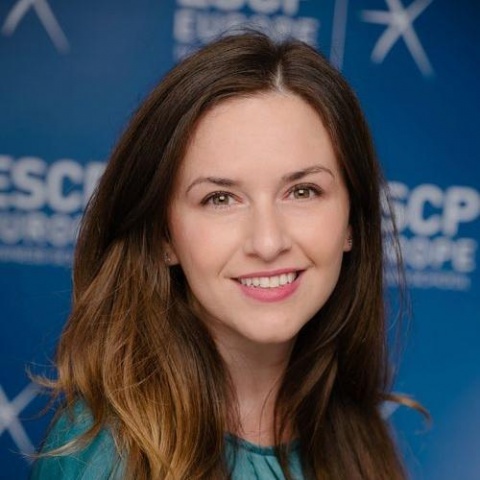
Professor Avgoustaki's interests lie at the intersection of human resource management and industrial relations. Her work has been published in Industrial and Labour Relations Review, Human Resource Management, and Economic and Industrial Democracy. Her work has been covered in media outlets such as The Financial Times, FT China, Business Insider UK, Le Monde, Le Figaro, The Daily Mail, Insider, CNBC, Le Soir, The Guardian, Women’s Health, New Scientist, Entrepreneur, MDR Radio, CNBC, and the World Economic Forum.

Professor Becker's research focuses on econometric modelling of marketing decisions, particularly advertising and its effectiveness. Maren’s work has been published in the Journal of Marketing and Journal of Marketing Research and was featured in press outlets such as die Zeit, Markenartikel, and Harvard Business Manager.
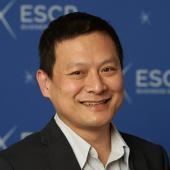
Professor Bunkanwanicha's research lies research lies at the intersection of family business, political connections, and finance. Published in top-tier finance and economic journals, namely the Review of Financial Studies, the Journal of Financial and Quantitative Analysis, the Journal of Comparative Economics, his research has been also presented in major academic conference such as the American Finance Association (AFA), the Western Finance Association (WFA), the European Finance Association (EFA).
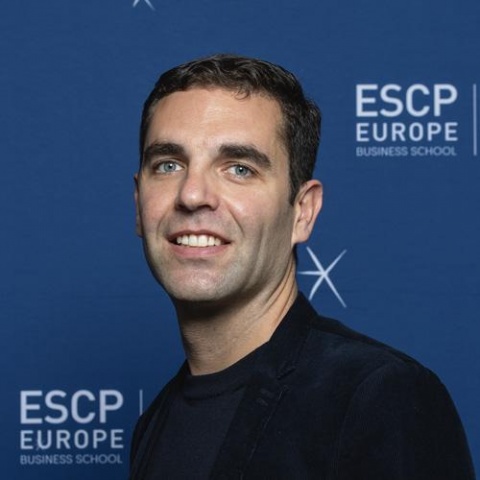
Based on Professor Bureau's research on creative practices, he created the Art Thinking: a method to create the improbable with certainty. He teaches this method in unique locations like Centre Pompidou. He has been a visiting scholar at UC Berkeley and City University of New York. Sylvain is also the co-founder of Storymakers, an app to make pitches people remember, and co-author of Free Your Pitch (Pearson, 2018).
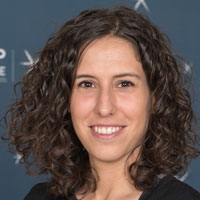
Almudena Cañibano holds a PhD in Employment relations and organisational behaviour from the London School of Economics and Political Science. Her research seeks to understand the changing nature of work and its impact on employee well-being and organisational outcomes. She has looked at work practices such as flexible working and the digitalisation of work. Her work has been published in outlets such as Human Relations, Industrial Relations: A Journal of Economy and Society, Management Decision and the Oxford Handbook of Participation in Organizations.
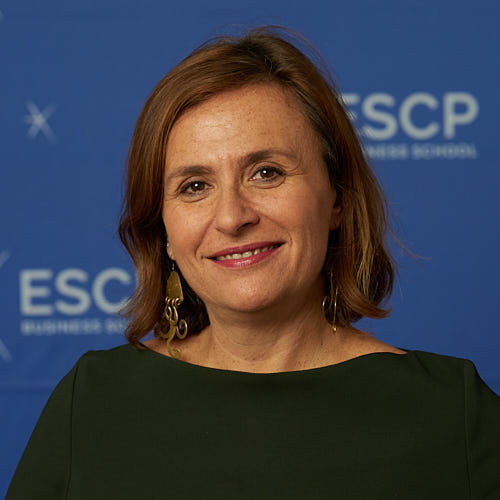
Areas of expertise: Sustainability, Supply Chain Management, Circular Economy transition.
Recent publications: Carmagnac, L., Carbone, V. and Touboulic A. (2022) “A Wolf in Sheep’s Clothing: The Ambiguous Role of Multistakeholder Meta-organisations in Sustainable Supply Chains”, Management, in press.
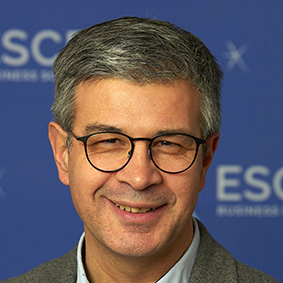
Areas of expertise: strategic innovation, entrepreneurship, international business, market strategies.
Recent publications: BRIDOUX, F., COEURDEROY, R. and R. DURAND Heterogeneous social motives and interactions: The three predictable paths of capability development, STRATEGIC MANAGEMENT JOURNAL, 2017
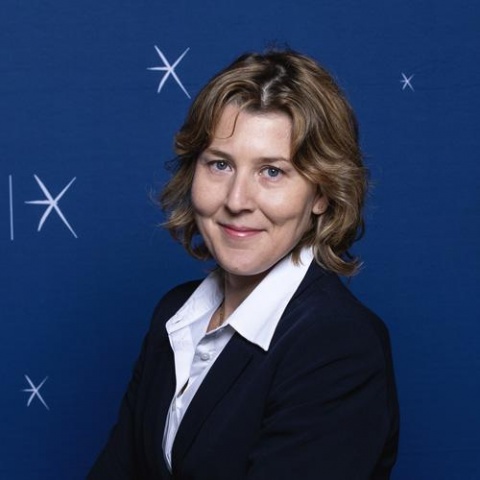
Professor di Giuli was a research assistant at the London School of Economics and a visiting fellow at Harvard Business School. Her research focuses on corporate governance, corporate social responsibility, mergers and acquisitions and family firms.
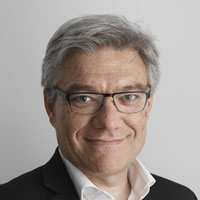
Frédéric Fréry is a Professor of Strategic Management at ESCP. He is author or co-author of 40 books, among which Stratégique, the most widely used strategy manual in the French-speaking world. He is also honorary professor at CentraleSupélec and expert for the Association Progrès du Management. He has been a Visiting Scholar at Stanford University and a Visiting Professor at the University of Texas at Austin. His research and teachings focus on strategy, organization and management of innovation.
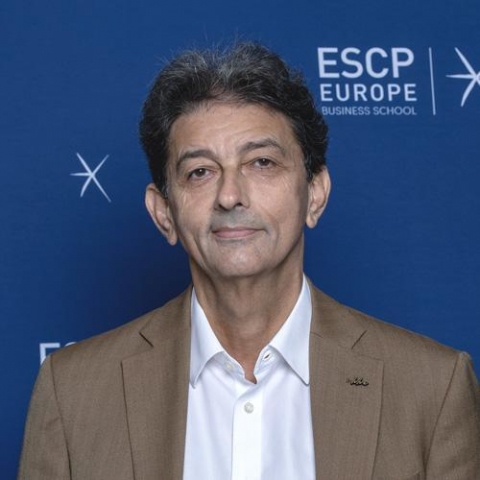
Professor Getz is a former Visiting Professor at Cornell and Stanford. His book Freedom, Inc. has been published in 14 countries and won the Best Business Book award. His other book L'entreprise liberée has also won the Best Business Bookaward. Isaac has studied over 300 organizations on four continents and has published extensively.
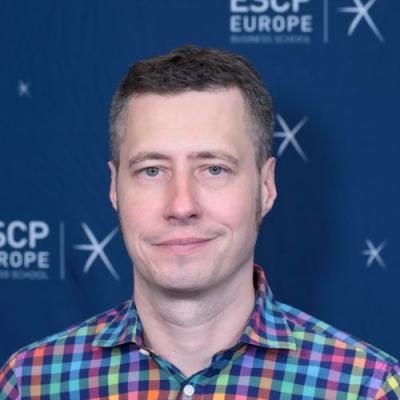
Professor Haenlein is the most cited researcher in the field of Word-of-Mouth, among the top three in the field of Customer Relationship Management and among the top ten in the field of Social Influence. Since May 2019 Michael is part of the Executive Committee of EMAC where he serves as Vice President Corporate Relationships.

Héctor González Jiménez has worked on projects for small to medium sized businesses as well as large international companies such as Pepsi or Ford. He is interested in interdisciplinary research that addresses phenomena on the self and consumption as well as human-robot interactions.
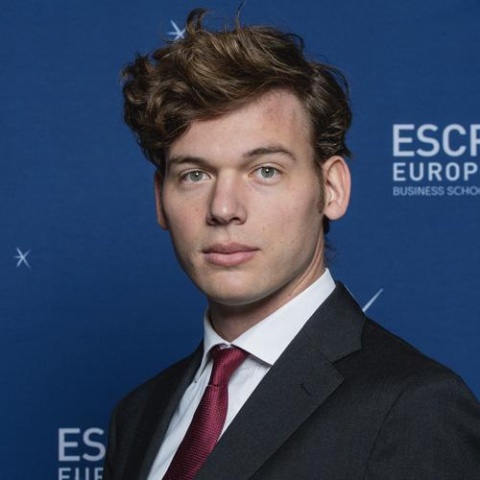
Professor Karehnke's work has been published in Management Science (Spanning Tests for Assets with Option-Like Payoffs: The Case of Hedge Funds) and the Review of Finance (Time-varying state variable risk premia in the ICAPM) among others.
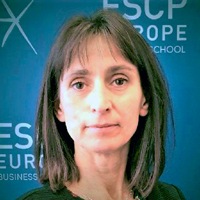
Professor Daniela Lup produces research, teaches, and consults in areas related to organizational behaviour, with a focus on practices related to decision making during transformation, negotiations, diversity & inclusion, creativity & teamwork. Her work is published in internationally renowned journals such as Organization Science, Journal of Business Ethics, Work Employment Society, and has been featured in Harvard Business Review and LSE Business Review.
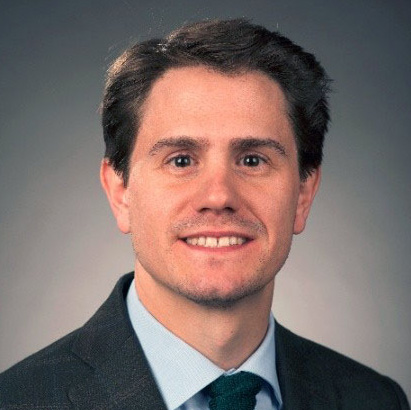
Jaime P. Luque is Associate Professor of Economics at ESCP Business School, where he holds the BNP Paribas Professorship in Real Estate and serves as Director of the Monaco Real Estate Tech Innovation program. He is the Academic Director of the MSc in Real Estate and the Institute of Real Estate Finance and Management. Prior to joining ESCP in July 2018, he was Real Estate faculty at the University of Wisconsin-Madison School of Business. Jaime’s research interests include real estate finance, real estate technology and housing. He has published in the Journal of Economic Theory, Journal of Public Economics, Economic Theory, Real Estate Economics, and Regional Science and Urban Economics.

Professor Moatti's current work focuses on the sustainable dimension of supply chain management, as well as innovation strategies in the fashion industry. She is the author of articles (published in Strategic Management Journal, European Management Journal, and International Journal of Logistics: Research and Applications, and Management, Business Strategy and the Environment, Supply Chain Forum – An International Journal…).

Professor Zhou received the Shanghai 1000-Talents Award (2018) and consequently leads the multi-disciplinary and multi-country research in the field of big data analytics, artificial intelligence, IoT, cryptography, and transportation engineering.
Join A Dynamic Ecosystem Of Corporate And Academic Research Leaders
Be a part of the ESCP global knowledge community. Benefit from the latest research at the highest level linked to companies and business and share your knowledge with colleagues from a large variety of academic specialisations and institutions around the world.
Global Executive Ph.D. candidates will be immersed in a world of knowledge:
- Participants can attend research seminars, conferences and colloquia organized by ESCP's full-time Ph.D. programme,
- Benefit from all the ecosystem of ESCP Chairs and Professorships.
Discover our multiple chairs and professorships on significant topic:
Chairs & Professorship
Global Executive Ph.D.
Admission
Who the Global Executive Ph.D. is for:
- Senior executives with 10+ years of leadership experience
- Business leaders and entrepreneurs shaping industries
- C-suite professionals, including CEOs, CFOs, COOs
- Industry experts looking to expand their impact through research
Admission Requirements
A previous university degree
A previous university degree: Masters (MBA or equivalent Masters). Non-management Masters holders are required to take additional management courses from the ESCP Executive MBA programme.
A minimum of ten years’ professional experience
A minimum of 10 years’ professional experience (at least 3 years at managerial level).
English proficiency (C1 level)
English proficiency (C1 level): courses are taught in English and all coursework must be submitted in English. IETLS: 7; TOEFL: 100 or In-house English Test (free) provided by British Council: CEFR c1*.
Admission Process
Application deadlines
For the 2026 intake
Please contact the Global Executive Ph.D. recruitment manager, Ambra Boccaccini, to receive the list of upcoming jury dates.
Step 1
Individual assessment meeting with the admissions department (initial discussion in person, by phone or visio-conference, with your programme advisor or another member of the admissions team).
Step 2
Applications are made online. The applications file will be made available to you following your initial discussion with your programme advisor. Please note that only complete applications will be reviewed:
- Your personal details: name, address, e-mail, telephone number
- Degree certificates or grade transcript
- Up-to-date CV
- Two reference letters, ideally one from an individual who knows you in a professional context (e.g. current or former manager) and the other by a person of your choice, if possible from an academic context (e.g. a university professor)
- English language certificate (for non-native English speakers), TOEFL, TOEIC, IELTS
- Copy of passport or ID
- Application fee of €350
- Statement of purpose: 1500 - 2000 words
Step 3
Your application will be reviewed by the Admissions Committee.
Step 4
Following a successful review of your application, an online admission interview with the Academic Admissions Jury (Executive Ph.D. Committee) will be organised.
Step 5
Admission decision
Step 6
Confirmation of enrolment and payment of tuition fees (You will be asked to pay a deposit to secure your place).
Statement of purpose
Your statement of purpose should address the following questions: Why do you want to do a Global Executive Ph.D. at this point in your career? What do you expect to acquire from the programme? What are your career aspirations following the Global Executive Ph.D.? Please describe your previous research experience, if any. What area of research are you interested in at this stage?
Global Executive Ph.D.
Fees & Financing
Tuition Fees
The ESCP Global Executive Ph.D.fees for:
- October 2026 intake: €94,500
The tuition fees include teaching and advising hours, all course materials, online resources, access to academic journals, a large selection of periodicals, and a lifetime membership to the Alumni Association.
Tuition does not include travel and living expenses.
Early Bird Offer
October 2026 Intake: Apply before 30 April 2026 (midnight CEST) to take advanted of our special early bird tuition offer: €89,000 (instead of €94,500)
Applicants who qualify for a scholarship may also benefit from the Early Bird tuition reduction
Scholarships
For more details, you can contact your programme advisor.
Financing
ESCP has partnerships with banks in several countries around the world. Loans at reduced rates are available for admitted candidates (final decision with the bank).
Funding may also be available in the form of scholarships or government loans in your country. Our Admissions Officer will be happy to advise you about funding opportunities.
Our on-campus teams are available to discuss tailored instalment schedules and flexible payments.

